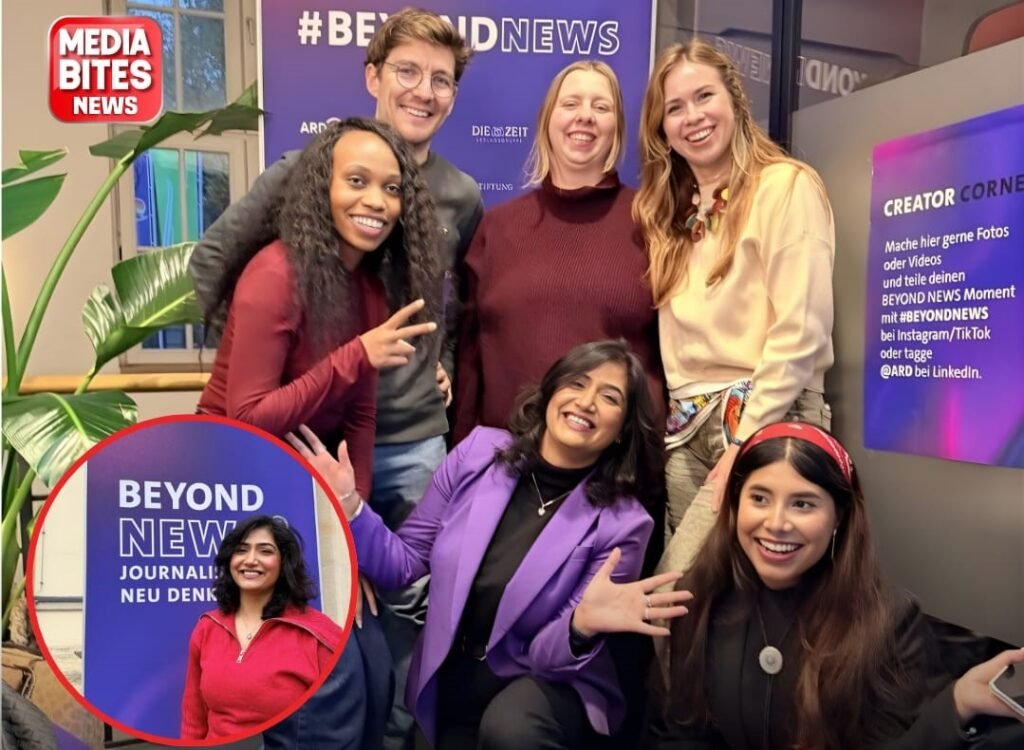Anooshay Abid of Deutsche Welle (DW) described the Beyond News conference as an “insightful and eye-opening experience,” highlighting how shifting media dynamics, platform monopolies and evolving audience behaviors are reshaping global journalism.
Representing DW at the international gathering, Abid said the event underscored both the critical role journalism plays in sustaining democracy and the growing challenges posed by Big Tech’s dominance over information distribution.
Building Trust Through Offline Engagement
Abid said panelists emphasized that editorial teams must reconnect with audiences through offline, community-driven events. Such initiatives, she noted, can strengthen public trust, broaden representation and bring more diverse voices into the media ecosystem.
Social Media Can No Longer Be an Afterthought
With 80 percent of global user time concentrated on five platforms — TikTok, Google, Meta, Apple and YouTube — Abid said newsrooms can no longer treat social media as secondary. Algorithms increasingly shape consumption habits, reducing visibility for public-interest content.
This shift, she observed, has accelerated the rise of personal branding in journalism, making clear, accessible guidelines essential to balance individual expression with professional integrity.
User-Centric Editorial Models Are Now Essential
As news markets fragment, Abid said editorial structures must adapt by prioritizing user needs and consumption patterns. Formats should be designed to address orientation, information and entertainment — with the latter remaining essential to ensure engagement.
Platform Dominance Limits Distribution
Abid noted that closed technology ecosystems restrict how journalism travels online. Open standards, such as RSS and ActivityPub, offer alternatives, but she questioned whether investing in emerging platforms is practical when audiences still concentrate heavily on established ones.
Youth Inclusion and Diversity Must Be Genuine
Panelists stressed that newsroom diversity should extend far beyond hiring. Abid said authentic youth inclusion requires co-authorship opportunities, influence over budgets and real editorial participation — not symbolic involvement or topic limitations.
Media Literacy Is a Civic Responsibility
Reflecting on her own experience growing up in Pakistan — where journalism is often perceived as unsafe — Abid said the conference reaffirmed the need for stronger media-literacy programs in schools and universities. Journalism, she said, should be understood as a foundational pillar of democracy, not merely a source of information.
Journalism Must Address Class and Inequality
Abid also highlighted the need for journalism that includes voices from all socio-economic backgrounds, not just those with formal academic training. Media, she said, must reflect society in its entirety, including marginalized communities.
Abid expressed gratitude to DW’s Format Development team and mentors Anne Kathrin Thüringer and Işıl Nergiz-de Boer for providing the opportunity to engage with global media leaders and reflect on the profession’s future.
“Still processing a lot,” she said, “but deeply thankful for the space to learn, rethink and connect.”
A strong reminder: the future of journalism will belong to newsrooms that understand audiences, embrace openness, and rebuild trust — one community at a time.



1 Comment
I am truly thankful to the owner of this web site who has shared this fantastic piece of writing at at this place.